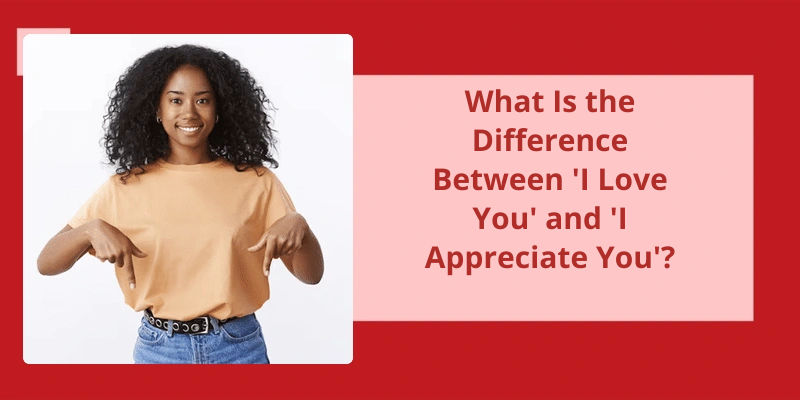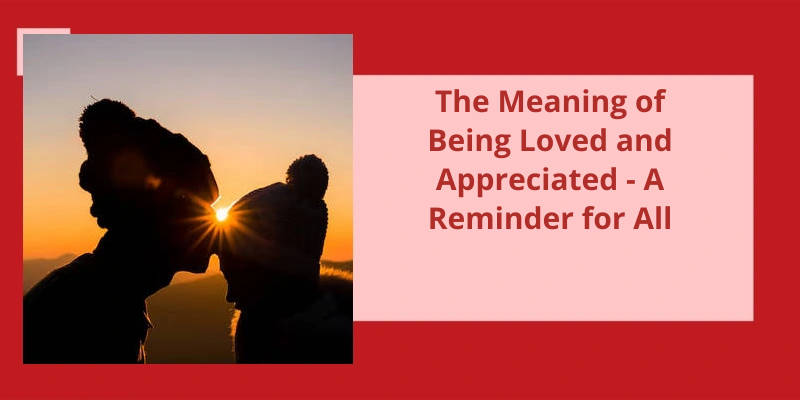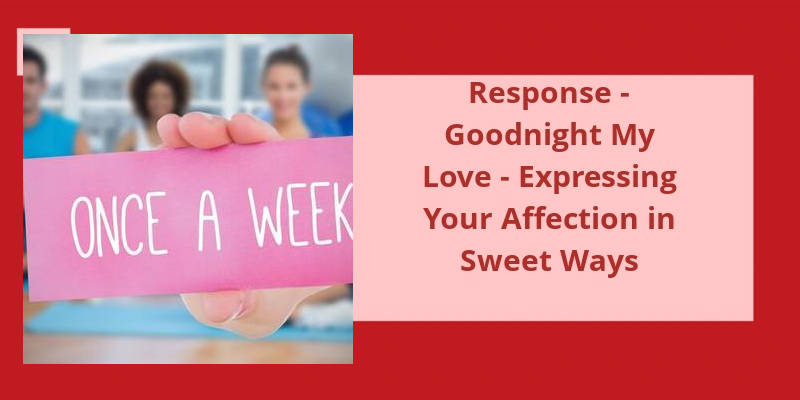When it comes to expressing our feelings towards someone, it's important to choose our words carefully. "I love you" and "I appreciate you" are two phrases that are often used interchangeably, but they’ve distinct meanings. While both expressions convey positive sentiments, there are subtle differences between the two. It's easy to say "I love you" to someone, but do we always mean it in the same way we say it? By contrast, saying "I appreciate you" requires a more deliberate intention. It's a way of acknowledging someone's worth and significance in your life, whether it's for a specific action or simply being a constant source of support. But why do we need to understand the difference between "I love you" and "I appreciate you"? Because the way we express our emotions can greatly impact how the recipient feels. So let's dive deeper into what distinguishes these two phrases and how they can affect our relationships.
Is Saying I Appreciate It the Same as I Love You?
Saying “I appreciate it” isn’t the same as saying “I love you.”. Appreciation is often shown in everyday life through gestures of gratitude, such as saying “thank you” or acknowledging someone’s efforts. It’s an expression of recognizing someone’s contributions or actions, but it doesn’t imply any deeper emotional connection.
On the other hand, love is a complex emotion that can encompass many different feelings, including admiration, respect, loyalty, trust, and affection. It’s often used in close relationships, such as family bonds, friendships, and intimate partnerships. When someone says “I love you,” they’re expressing a much deeper connection that goes beyond simple appreciation.
While expressing appreciation is certainly important and can strengthen relationships, it isn’t a substitute for expressing love.
It’s important to remember that expressing love is a personal choice and shouldn’t be taken lightly. When someone says “I love you,” they’re opening themselves up to vulnerability and potentially putting their emotional well-being on the line. That’s why it’s crucial to only say those words when you truly mean them and are prepared to act on them.
Appreciation is a fundamental part of everyday life and helps build healthy relationships, while love is a more complex emotion that involves a deeper emotional connection and sense of intimacy. Whether you choose to express appreciation or love, always remember to do so with sincerity and respect for the other person’s feelings.
Now that we’ve a better understanding of what appreciation means in general, let’s explore the concept of self-appreciation and why it’s important to value and recognize our own worth and achievements.
What Does I Appreciate Me Mean?
Saying “I appreciate you” can hold a lot of weight to the person receiving it. It’s a gesture that can significantly affect their feelings and emotions towards the person saying it. To appreciate someone means more than just acknowledging their actions, it’s acknowledging their worth as a person.
It isn’t about being arrogant or self-centered, but about acknowledging their own efforts and accomplishments. It’s important to practice self-appreciation as it can significantly boost our self-esteem and confidence. Self-appreciation allows us to focus on our strengths rather than our weaknesses.
Appreciation can also have a positive impact on relationships. Expressing gratitude towards our loved ones can strengthen our bond with them. It can lead to a newfound appreciation of their efforts and lead to a better understanding of each other. By acknowledging each other’s worth, we can build a foundation of trust and respect.
So, let’s all take the time to appreciate the people in our lives and ourselves.
Conclusion
In essence, expressing appreciation and expressing love both have their unique merits and impacts on our relationships. While love may signify a deeper emotional connection with someone, appreciation acknowledges and values the efforts and contributions of our loved ones. Both expressions have a place in different contexts and situations, and cultivating a balance between the two is essential for a healthy relationship. Ultimately, it's important to recognize and communicate our emotions to others, whether it's love or appreciation, to strengthen our bonds and live more fulfilling lives.






